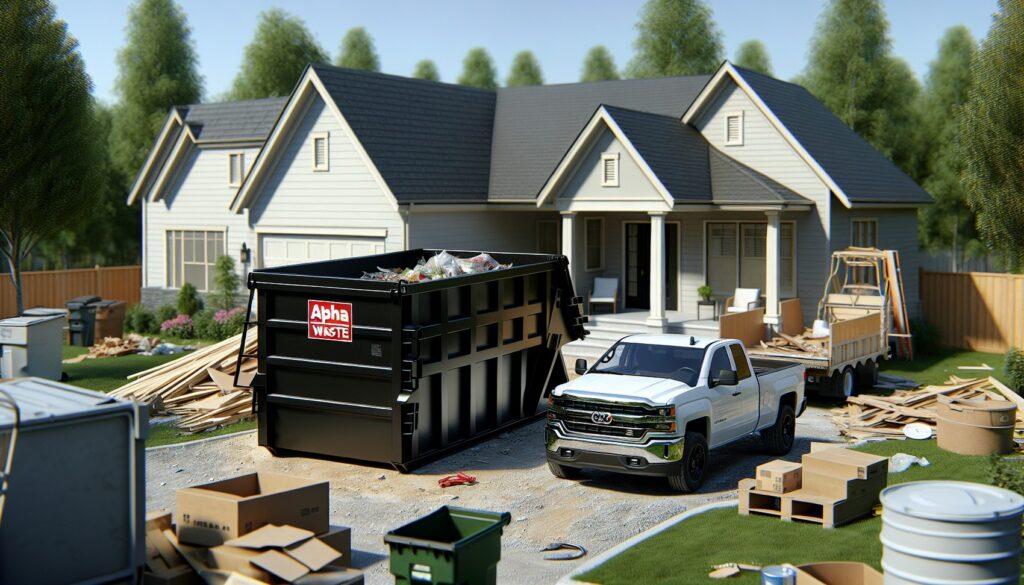In today’s world, it is essential for everyone to be conscious of the environment and take steps towards sustainable living. When it comes to home remodeling projects, it is important to consider how we manage waste to minimize our impact on the planet. Proper waste management during remodeling not only helps in reducing pollution and conserving resources but also promotes a healthier and cleaner living environment for everyone. This article aims to provide eco-friendly tips for residential waste management during remodeling, ensuring that your project is not only successful but also environmentally responsible.

Before beginning any remodeling project, it is crucial to create a waste management plan. By planning ahead, you can ensure that you have the necessary strategies and resources in place to handle waste responsibly. Here are some key points to consider:
Assess the Project
Start by assessing the scope of your remodeling project. Determine which areas of your home will be affected and estimate the amount and types of waste that will be generated. This will help you tailor your waste management plan accordingly.
Research Local Regulations
Check with your local authorities and familiarize yourself with any regulations or guidelines regarding waste disposal during remodeling. Different areas may have specific requirements, such as recycling certain materials or using licensed contractors for waste removal.
Engage Professionals
If your remodeling project is extensive, consider hiring professionals who specialize in eco-friendly waste management. These professionals can guide you through the process, ensuring that waste is disposed of properly and recycled whenever possible.
Reduce, Reuse, Recycle
One of the fundamental principles of eco-friendly waste management is the concept of reduce, reuse, and recycle. By following these principles, you can significantly minimize the amount of waste that ends up in landfills. Here’s how you can incorporate them into your remodeling project:
Reduce
Before starting your remodeling project, carefully plan the materials and resources you will need. Only purchase what is necessary to avoid excess waste. Consider using durable and long-lasting materials that will require less frequent replacement in the future, reducing not only waste but also your overall expenses.
Reuse
Whenever possible, explore opportunities to reuse materials from your old fixtures and fittings in the new design. For example, if you are replacing cabinets, consider refinishing or repainting them instead of buying new ones. This not only reduces waste but can also add a unique touch to your remodel.
Recycle
Properly segregate and recycle any materials that can be recycled. Contact your local recycling facilities to determine what materials they accept and how they should be prepared for recycling. Commonly recyclable materials during remodeling include metal, glass, plastic, and some types of wood.
Safe Disposal
For materials that cannot be reduced, reused, or recycled, proper disposal is crucial. Ensure that hazardous materials or potentially harmful substances are disposed of safely and in compliance with local regulations. Here are some guidelines to follow:
Hazardous Waste
If your remodeling project involves the use of hazardous materials such as paint, solvents, or adhesives, do not dispose of them in regular waste bins. Contact your local hazardous waste disposal facility for guidance on how to safely dispose of these items.
Construction Debris
Construction debris, such as concrete, bricks, and drywall, may need to be disposed of separately. Consider renting remodel dumpsters for residential use to ensure that these materials are collected and disposed of correctly. These dumpsters are designed to handle the specific waste generated during home remodeling projects, making the process more efficient and eco-friendly.
Conclusion
Proper waste management during remodeling is an essential part of responsible homeownership. By incorporating eco-friendly tips into your waste management plan, you can minimize your environmental impact, conserve resources, and contribute to a cleaner and healthier planet. Remember to properly plan ahead, reduce waste through careful material selection, and dispose of any remaining waste in compliance with local regulations. Together, we can create a more sustainable future, one remodeling project at a time.
